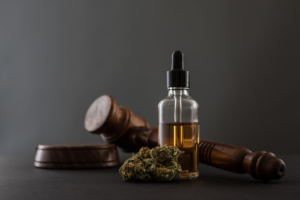
Thank You For Helping Hemp Products
Update 5/11/22 We’re pleased to announce that this new version of the bill, with slight technical amendments, was overwhelmingly passed by the Colorado House and Senate during the final

Update 5/11/22 We’re pleased to announce that this new version of the bill, with slight technical amendments, was overwhelmingly passed by the Colorado House and Senate during the final

There is no question that we, as a country, have a moral obligation to build restorative measures for those who have been negatively impacted by the War on Drugs. Black

Maybe, maybe not! It depends on a few different factors so let’s start with what we know. The Problem Explained The idiom, “the cart before the horse,” best

As research continues to prove the benefits of cannabidiol, the popularity of CBD products is rapidly rising. This is not only true for humans, but for pets as well! Pet

Dearest Charlotte, We thank you, we thank you, we thank you! You changed the world in your short 13 years. Today is your day, April 7th, Charlotte Figi day.

In recent years we have seen a lot of hemp products become available on the market. One item of more recent interest is hemp or CBD coffee. Hemp coffee involves

In recent years, Cannabidiol, or CBD, has grown in popularity due to increased research and interest in its potential health benefits. Studies show that CBD can help alleviate a variety

An estimated 1 in 5 people will experience hives, also known as urticaria, at some point in their lives. A multitude of situations and substances can trigger the skin rash,

If you are familiar with the benefits of cannabinoid therapy, then you may have also heard of the biphasic properties of cannabinoids. In short this means that low and high

Cannabinoid therapy has gained a lot of attention recently in the world of sports. First, there is approval of Cannabidiol (CBD) by the World Doping Agency, therefore permitted for use
Open the following in new tabs if you:
If you are already a user: Client Login
If you are not, then register: Client Registration
Once Logged in, click below to refresh the page.